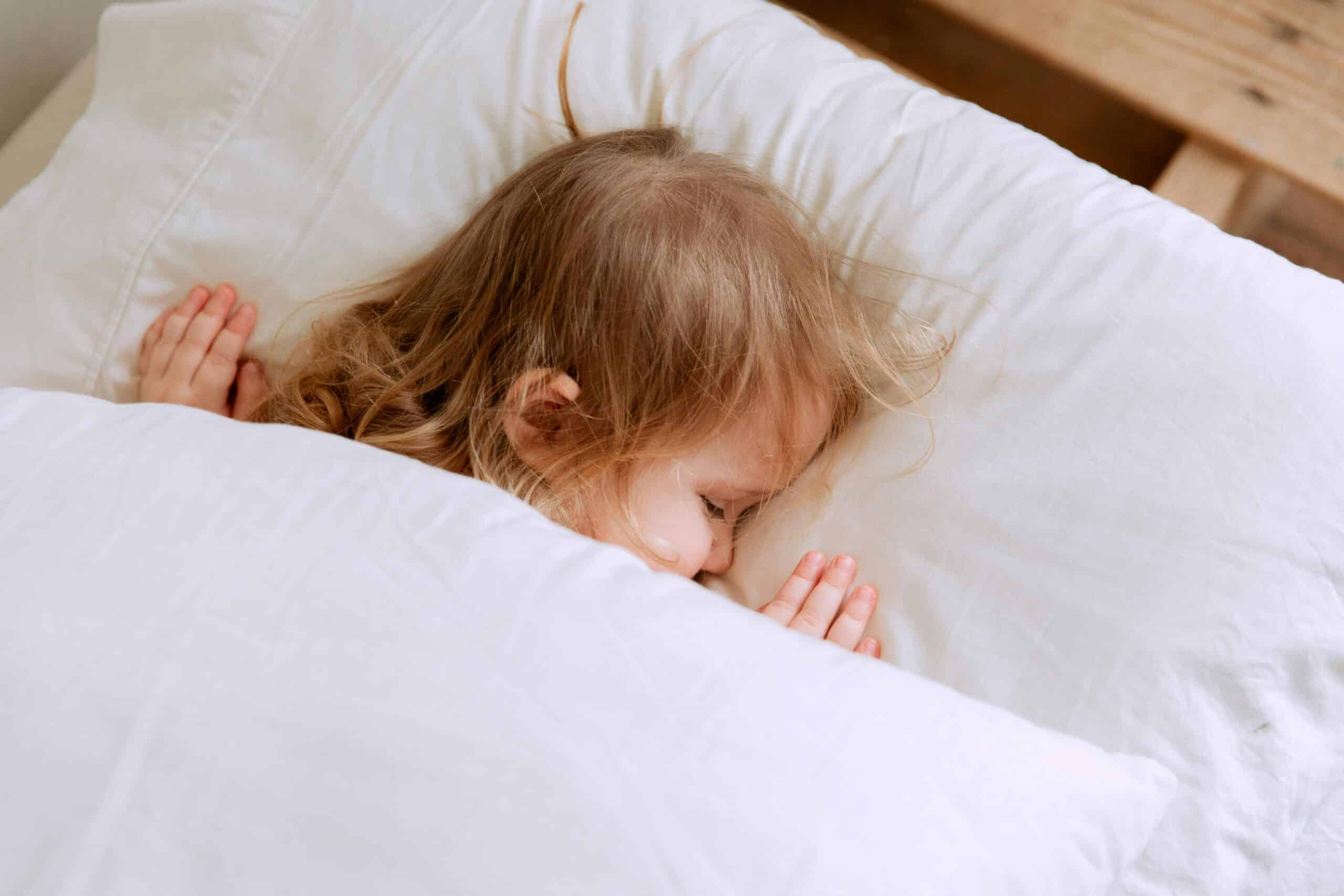Being a parent comes with its set of hurdles. When your child is autistic certain tasks, like ensuring they get enough sleep can be especially tough. Sleep is vital for a childs well being. Those on the autism spectrum often deal with challenges when it comes to bedtime.
In this piece we’ll discuss why sleep is crucial for children with autism the sleep problems they might face practical tips for establishing sleep habits and how Autism ABA Therapy uses Applied Behavior Analysis techniques to help individuals, with autism develop important skills and tackle behavioral issues.
The Importance of Sleep for Children with Autism
Getting sleep is crucial, for every child. Its especially important for those with autism. Kids with autism often have trouble processing information, communicating and sticking to a routine, which can make it harder for them to establish and keep sleep habits. Good sleep is key, for thinking managing emotions and staying well. Things that children with autism may find challenging.
Common Sleep Issues in Children with Autism:
Difficulty Falling Asleep:
Children who have autism may find it challenging to relax and shift into sleep mode. Factors, like sensitivity to light, noise or physical contact could play a role, in making it harder for them to fall asleep.
Frequent Night Wakings:
Many kids, with autism often have trouble with their sleep patterns resulting in them waking up frequently at night. Issues such as anxiety or stomach troubles may be the reasons, behind these disturbances.
Inconsistent Sleep Patterns:
Children, with autism often find it tough to stick to a sleep schedule because they prefer consistency and familiarity. Any alterations, in their routine travel plans or surroundings can throw off their sleeping habits.
Sleep-related Anxiety:
Children diagnosed with autism might feel anxious, about their sleep surroundings, bedtime rituals or the darkness. Such anxiety could lead to struggles in both falling asleep and staying asleep.
Strategies for Establishing Healthy Sleep Patterns:
Create a Consistent Bedtime Routine:
It’s important to have a bedtime routine, for kids with autism. Make sure to include calming activities before bed like using lights playing relaxing music or giving hugs.
Create a Comfortable Sleep Environment:
To enhance your sleep quality set up a sleep space with curtains, cozy bedding and a comforting weighted blanket, for a more restful experience.
Limit Stimulating Activities Before Bed:
Try to limit engaging activities, near bedtime. Stay away from screens for an hour before sleep as the blue light, from screens can disrupt the production of melatonin the hormone that helps you sleep.
Introduce a Visual Schedule:
Consider using timetables to assist children with autism in comprehending and preparing for the sequence of activities, before bedtime. This approach can offer a feeling of routine and foresight ultimately lessening feelings of anxiety.
Encourage Physical Activity:
Getting your child moving regularly can assist in regulating their sleep schedule. Try to include activities, in their routine that encourage movement like playtime or outdoor adventures.
Consult with a Healthcare Professional:
If you continue to experience difficulties, with sleep it’s an idea to reach out to a healthcare provider, someone who has knowledge in autism. They can assist in pinpointing any root causes like issues or sleep disturbances and offer advice.
Consider Sleep Aids Carefully:
It’s important to talk to a healthcare provider before giving your child any sleep aids. For instance melatonin supplements might be suggested in situations. Its crucial to figure out the right amount and when to take them.
Promoting Communication:
Communication plays a role, in supporting children with autism in sharing their thoughts and worries about sleep. It’s important to prompt your child to express their emotions, about bedtime and any uneasiness or worries they might have. Creating an environment of dialogue builds trust. Can ease any anxiety related to sleep.
Building a Social Story
Social stories are tools that use images and easy to understand language to illustrate scenarios and daily routines. Crafting a narrative regarding bedtime can aid children with autism in grasping the norms and actions associated with the bedtime ritual. This visual tool serves as a reference lessening ambiguity and stress.
Seeking Support from Specialized Therapists:
You may want to think about including occupational or behavioral therapists who specialize in areas, like behavioral therapy to help with specific sleep related issues. These experts can offer tailored solutions and techniques to tackle any problems, worries or behavioral issues that might be affecting your childs sleep.
Establishing a Sleep-Positive Mindset:
Encourage an attitude, towards sleep by linking bedtime with pastimes. Integrate calming rituals into the bedtime routine like reading a book or participating in a soothing activity. This optimistic approach can foster a outlook on bedtime leading to a smoother experience, for both the child and the caregivers.
Modeling Healthy Sleep Habits:
It’s important for kids to pick up sleep habits by observing others so showing them how to maintain a bedtime routine is key. By setting a fixed sleep schedule, for everyone in the family you’re highlighting the value of getting rest. Having everyone follow the routine can create a sense of stability and predictability, at home which can positively impact a childs health and happiness.
Educating Caregivers and Support Systems:
It’s important to make sure that caregivers, teachers and anyone else who plays a role in a childs life understands the sleep requirements and difficulties that come with autism. Sharing details, about the childs bedtime habits, possible triggers and effective strategies encourages a team effort, in supporting sleep habits.
Monitoring and Adjusting:
Make sure you keep an eye on your childs sleep habits and be ready to tweak the routine if necessary. Kids, with autism might go through shifts, in their sleep patterns for reasons so being flexible helps you tackle any issues quickly.
Celebrating Progress:
Don’t forget to acknowledge and celebrate the wins and advancements, in your childs sleep routine. By recognizing and praising sleeping habits you can create a feeling of achievement, for both your child and the whole family. Remember, celebrating the milestones helps foster a supportive and uplifting atmosphere.
Conclusion
Establishing sleep routines, for kids with autism requires patience, empathy and a customized approach. By understanding the difficulties these kids face and using strategies parents can create a bedtime environment that promotes restful and refreshing sleep. Prioritizing sleep habits not benefits the childs overall health but also fosters a more peaceful and balanced family life.
As you start on this path seeking advice and assistance can make a difference. For expert support tailored to your childs requirements consider reaching out to Move Up ABA. Their team of professionals is committed to helping families with children. Take the step, toward establishing sleep patterns by connecting with Move Up ABA. With their guidance you can tackle the challenges of promoting growth and improving your childs well being.
FAQs
Why is quality sleep essential for children with autism?
Getting sleep is really important, for thinking managing emotions and staying healthy. Kids, with autism sometimes struggle with talking and sticking to a routine so getting sleep is extra important for them to feel their best.
What are some common sleep issues experienced by children with autism?
Some common problems, with sleep are:
- Having trouble falling asleep.
- Waking up often at night.
- Irregular sleep schedules caused by sticking to a routine.
- Feeling anxious about sleep such as concerns, about the bedtime sleeping environment.
How can I establish a consistent bedtime routine for my child with autism?
Before bedtime establish a routine that includes elements, for individuals with autism, such as gentle lighting, calming music and comforting touch. It’s important to maintain consistency and predictability for children, with autism.
What can I do to address issues in my child’s sleep environment?
To reduce disruptions consider utilizing blackout curtains, cozy bedding and a weighted blanket. Try incorporating sleep items such, as sleepwear a plush mattress or white noise devices to establish a calming bedtime atmosphere.
Is physical activity beneficial for regulating sleep patterns in children with autism?
Certainly! Engaging in exercise can assist in maintaining healthy sleep patterns. Integrate activities that encourage movement into your childs schedule like outdoor adventures.
When should I consult with a healthcare professional regarding my child’s sleep issues?
If you continue to have trouble sleeping it’s best to seek advice, from a healthcare provider who has expertise in autism. They can assist in uncovering any root causes, like issues or sleep disorders and offer recommendations.
Are sleep aids a viable option, and how should I approach their use?
It’s important to talk to a healthcare provider before thinking about giving your child sleep aids. For instance melatonin supplements might be suggested in cases. Its crucial to figure out the right amount and when to take them.
How can I encourage effective communication about sleep with my child with autism?
Encourage your kid to share their emotions, about bedtime and any uneasiness or worries they might have. Building communication builds trust. Eases any anxiety related to going to sleep.
What are social stories, and how can they assist in establishing healthy sleep patterns?
Social stories are, like aids that use images and easy words to describe routines. Making a story, about bedtime can assist kids with autism in grasping whats expected giving them a roadmap and easing worries and stress.
Should I involve specialized therapists for my child’s sleep challenges?
You might want to think about bringing in therapists who specialize in areas like behavioral therapy to help with particular issues linked to sleep. These therapists can offer tailored treatments and techniques for dealing with anxiety or behavior problems that affect sleep.








